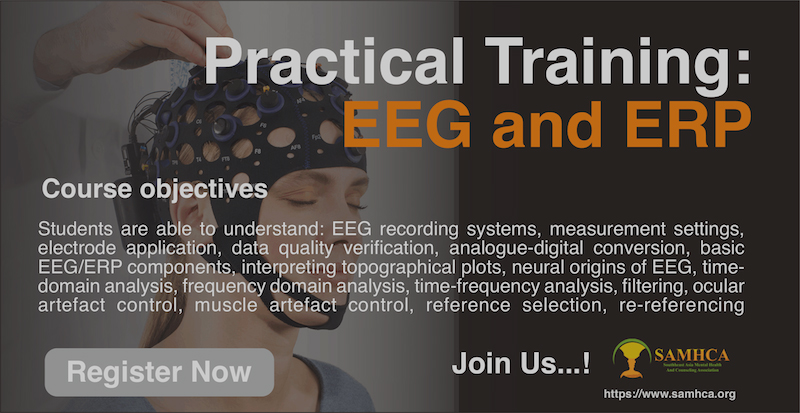Full course description
EEG can measure oscillatory electrical brain activity, and Event-Related Potentials (ERP) can precisely measure the time course of brain processes. They are low-cost, non-invasive, and widely available methods. For these reasons, they contribute significantly to cognitive neuroscience. EEG and ERP are gaining scientific attention, and their findings have been increasingly integrated with other neuroimaging methods over the last few decades.
Students are introduced to the fundamentals of EEG and ERP research, terminology, and the capabilities and limitations of EEG and ERP through lectures and basic literature. Students research an empirical data article from the literature and respond to questions about its EEG and ERP methods and interpretation based on lectures, basic literature, and other sources for a Midterm paper. Students also learn about practical measurement issues like electrode placement and artefact types. Finally, students will interpret the data that has been collected.
Understanding the fundamentals of EEG and ERP signal analysis techniques, such as artefact management, spectral analysis, filtering, ERP averaging, time-frequency analysis, and so on, is required for successful measurement. Students are also trained on how to conduct an ERP experiment, including electrode application, artifact minimization, and lab health and safety. A variety of simple experimental paradigms will be used to produce interesting and consistent results. Data processing will include a variety of common EEG analyses, such as time and frequency domain analyses.
Course objectives
Students are able to understand: EEG recording systems, measurement settings, electrode application, data quality verification, analogue-digital conversion, basic EEG/ERP components, interpreting topographical plots, neural origins of EEG, time-domain analysis, frequency domain analysis, time-frequency analysis, filtering, ocular artefact control, muscle artefact control, reference selection, re-referencing
The training fees: (Exclude Accommodation)
|
Indonesian |
|
|
|
|
||||
|
Indonesian Practitioner |
: |
IDR 65.000.000 |
|
|||||
|
Indonesian Professional |
: |
IDR 75.000.000 |
|
|||||
JOIN US..!
- Email. [email protected]
